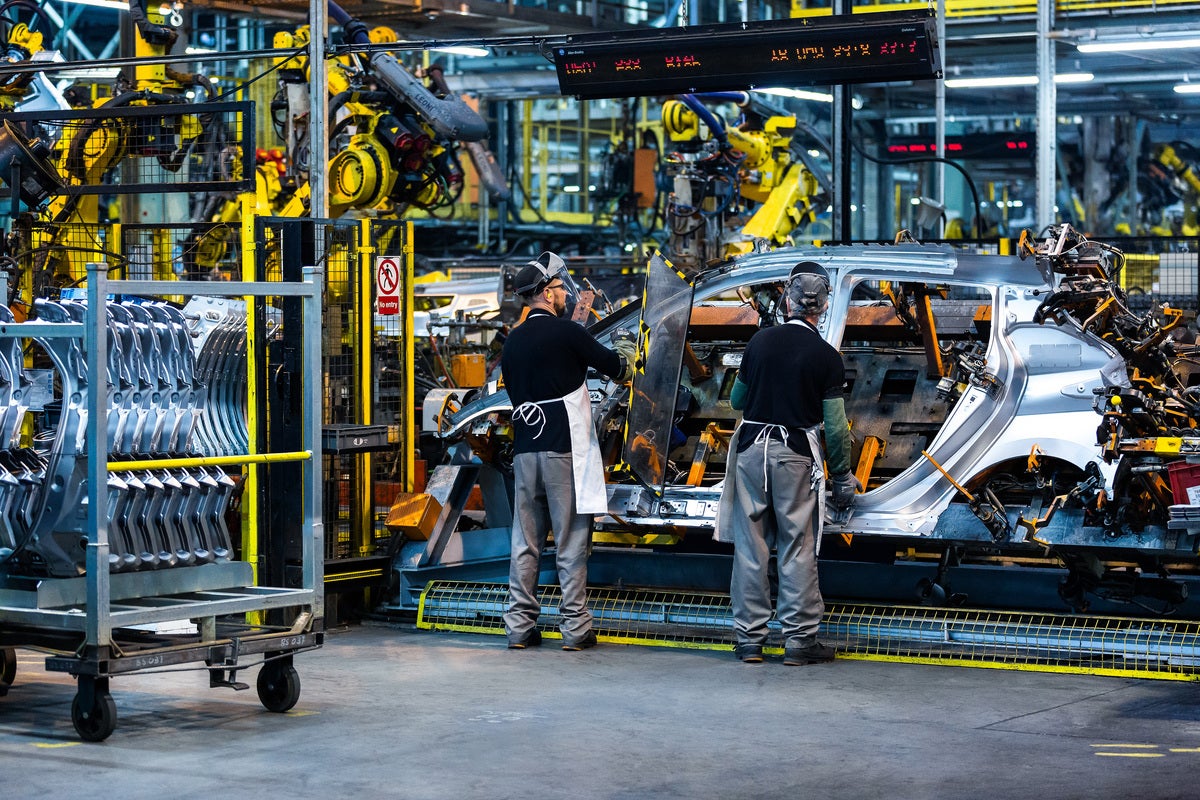
UK car production fell by 20.1% to 68,790 units last month, according to figures released today by the Society of Motor Manufacturers and Traders (SMMT). It was the the weakest January total since 2009.
Output was down 17,262 units against the same month last year, which itself was one of the worst Januarys on record when volumes were impacted by friction in the new post-Brexit trading arrangements, extended shutdowns and the pandemic.

Discover B2B Marketing That Performs
Combine business intelligence and editorial excellence to reach engaged professionals across 36 leading media platforms.
Several factors conspired to drive year on year production down still further in January 2022. The sustained worldwide shortage of semiconductors was the most significant cause, exacerbated by the loss of volume arising from Honda’s Swindon plant closure in July 2021 and production variations caused by the changeover of some popular models.
On a more positive note, the SMMT said that battery electric vehicle (BEV) production was up a by over a third on year-ago levels with January output up 37.6% to 6,326 units. One in eleven cars made in the UK are now BEVs.
Including plug-in hybrids and hybrids, electrified vehicles accounted for more than a quarter of output (27.4%, up from 25.4% in 2021).
Production for both overseas and domestic markets was down year on year, by 17.5% and 30.8% respectively. The EU remained the largest destination for UK-made cars, taking 59.1% of exports, followed by China (10.4%) and the US (10.0%).
Mike Hawes, SMMT Chief Executive, said: “It’s another torrid start to the year as global supply issues and structural changes squeeze output while model changes impact production scheduling. The UK automotive manufacturing industry is, however, fundamentally strong and recent investment announcements are testament to the potential for growth, not least in terms of rising EV production. Long-term recovery can only be delivered, however, if global competitiveness is assured and for that we must address both inflationary and fixed costs, most obviously escalating energy prices, but also fiscal and trading costs. Every measure must be taken if we are to secure a bright, electrified future for our world-class automotive manufacturing base and the high skilled, high value jobs it creates across Britain.”
UK car production forecasts have been revised downwards from the autumn outlook to approximately 979,000 units for 2022, although this would still represent a 14.4% increase on 2021’s total. Besides the loss of Honda production in Britain, the total for UK passenger car production is also being structurally impacted by the switch of some factories to light van production.
Nevertheless, UK car production is expected to exceed one million units from 2023 onwards, and surpass 1.1 million in 2027.






